エアコンがオンにならない 13 の理由とその解決方法
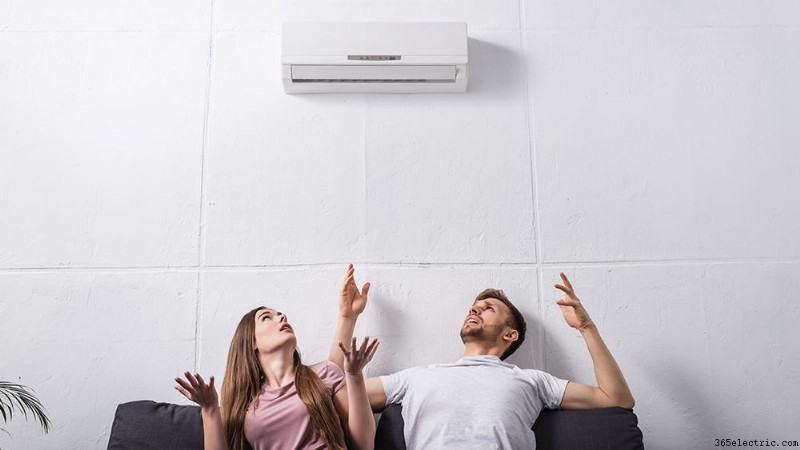
エアコンをオンにするたびに、エアコンが完全に正常に動作することを期待しています。結局のところ、それは毎シーズンあなたの快適な仲間です.
しかし、HVAC ユニットがあなたの側から離れて、オンにならないことがあります。同じような状況に直面している場合は、心配しないでください。それは、DIY ソリューションとして、または場合によっては専門家への電話で簡単に修正できるものかもしれません.
メンテナンスの問題からユニットの老朽化まで、さまざまな理由が考えられます。 ACがオンにならない理由と原因のトラブルシューティング方法を理解するのに役立つ広範なリストをまとめました.
https://www.youtube.com/watch?v=6txPShN10pc1.サーモスタットの誤動作
エアコンが突然効かなくなりました。あなたは慌てて、さまざまなエアコンの専門家に電話をかけ始めます。
しかし、ちょっと止めてください。サーモスタットをチェックしましたか?
サーモスタットの誤動作は、エアコンの性能に影響を与える可能性があります。
まず、サーモスタットのディスプレイが点灯しているかどうかを確認します。オフの場合、AC にオンにするよう信号を送ることができません。次に、電池式のサーモスタットをお持ちの場合は、サーモスタットの電池を確認してください。
バッテリーに問題がない場合は、サーモスタットの動作を確認してください。室内温度より5~6度低い温度に設定してください。数分後、AC ベーンの前に手を置いて冷気を感じます。オンになっている場合は、ほら、問題は解決しました!
ただし、エアコンがまだオンになっていない場合は、サーモスタットをオフにし、カバーを外してコンポーネントを確認してください。破片や腐食の蓄積を探します。また、切れたヒューズを探します。時々、彼らは犯人です。柔らかいブラシでゴミを自分で掃除できますが、腐食の問題については専門家に連絡する必要があります。
また、サーモスタット内部のネジや配線の緩みがないか確認してください。正しい配線図については、ユーザー マニュアルを参照する必要があります。
2.冷媒不足
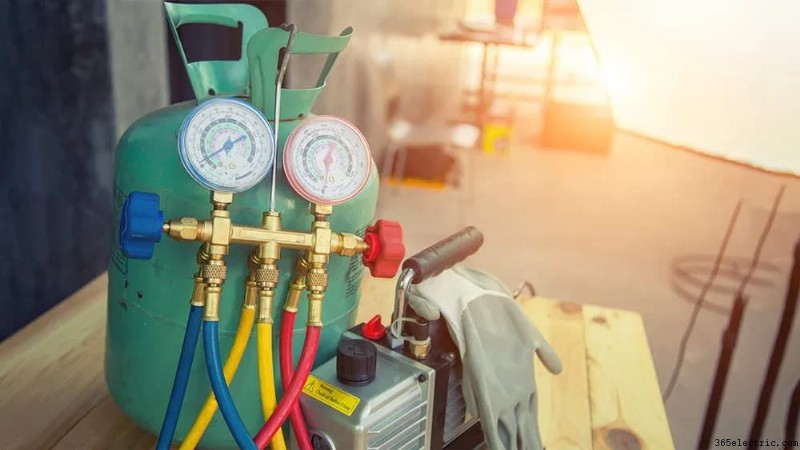
AC がオンにならない理由の 1 つは、冷媒不足が原因である可能性があります。
冷媒は、AC のコイルに存在する冷却液です。これは主に、AC からの非常に望ましい冷気、またはヒート ポンプの場合の熱気を提供する役割を果たします。
冷媒不足は、エアコンが液体を使い果たしたことが原因ではありません。この状況では、漏れが原因である可能性があります。亀裂は、時間の経過とともに AC コイルに蓄積し、漏れにつながる可能性があります。さらに、定期的なメンテナンスに時間を割かないと、長期的には腐食につながる可能性があります。
この状況では、冷媒を充填するだけではないため、自分で多くのことを行うことはできません。レベルは、AC の製造元が指定したレベルと正確に一致する必要があります。専門家に連絡して、冷媒レベルを確認し、漏れの原因を特定する必要があります.
エアコンを定期的にメンテナンスすることで、将来この問題を回避できます。
3.エアフィルターの詰まり
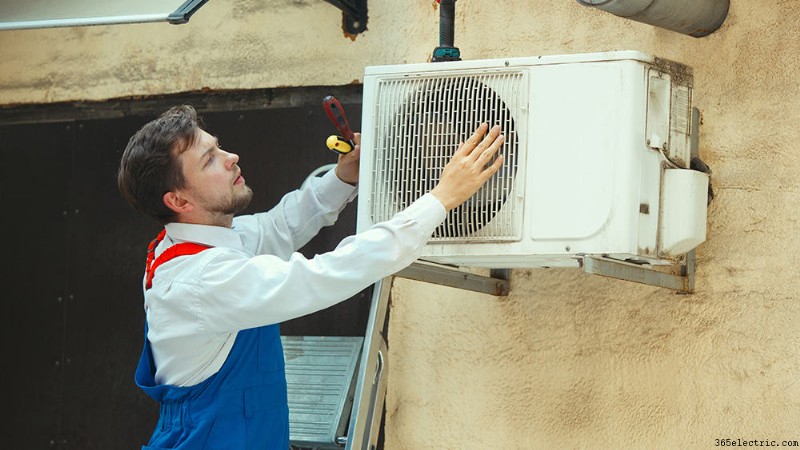
エアコンのエアフィルターを最後に掃除したのはいつか覚えていますか?
答えが「いいえ」の場合、フィルターが汚れて目詰まりしているために AC が適切に機能しない可能性があるため、大きな問題です。エアコンの種類に関係なく、フィルターの掃除は必須です!
フィルターの役割は、適切な空気循環を確保することです。それらが破片で満たされている場合、気流はほとんどブロックされています。この場合、システムは家を冷やすためにより多くの作業を行う必要があり、一定期間にわたって機能しなくなる可能性があります。
汚れたエア フィルターは屋外の AC ユニットを凍結させ、システムの動作を妨げ、場合によっては AC がオンにならない原因にもなります。
奇妙ですが、それは起こります。
AC の室内ユニットには蒸発器コイルがあり、室外ユニットにはコンプレッサーが含まれています。冷媒ラインは、これら 2 つのコンポーネントの間にあります。気流が制限されると、家からの暖かい空気が冷媒に到達しません。その後、冷媒は非常に冷たくなり、コイルの水分が凍結します。
怖いですが、慌てる必要はありません。状況に対処するために専門家に電話するか、自分でフィルターを掃除することができます.コイルについた氷が溶けてしまうので、しっかりと水を汲んでください。掃除が終わったら、フィルターを完全に乾かしてからエアコンをつけてください。
ダクト付きシステムを使用している場合はスマート サーモスタットを使用するか、ダクトレス ミニスプリット ユニット用のスマート AC コントローラーを使用して、AC のエア フィルターの清浄度レベルを監視することをお勧めします。継続的な監視は、将来のフィルターの目詰まりの問題を回避するのに役立ちます。
4. AC のコンデンサーが死んだ

HVAC ユニットが突然始動および停止する場合、または屋外の AC ユニットからカチッという音が聞こえる場合は、AC のコンデンサが切れている可能性があります。
コンデンサは、HVAC システムの不可欠な部分です。モーターの回路に接続されており、モーターに最初のプッシュを与えて運転を開始します。モーターが特定の速度に達すると、コンデンサは回路から切り離されます。
コンデンサには次の 2 種類があります。
- 始動コンデンサは、モーターを始動させるための電圧を提供します
- 実行コンデンサーは、それらを実行し続けるためのエネルギーを提供します
コンデンサが故障する原因は?
AC のコンデンサは熱に敏感です。過熱は、AC が希望の温度に到達するために一生懸命働いたり、日光にさらされたりすることによって引き起こされる可能性があります。室外機を屋根に設置すると、夏の暑い日にオーバーヒートの被害に遭う可能性があります。
極端に寒い日や暑い日は、サーモスタットの最高/最低温度を設定しないでください。ユニットの動作が激しくなり、コンデンサが過熱する可能性があるためです。
停電や電力変動も、コンデンサに大きな損傷を与える可能性があります。電源変動による損傷を防ぐため、サージプロテクタの設置を検討してください。
さらに、コンデンサのエネルギー放出能力が年々低下するため、老齢によりコンデンサが枯渇する可能性があります。
経年に関しては、定期的なメンテナンスにより、コンデンサの問題を早期に発見することができます。解決策は非常に簡単です。電気技師にコンデンサーを交換してもらいます。
注: Never try to replace the capacitor yourself as there is an electrical charge stored in it; there is a risk of severe electric shock. Never try to run your AC on a bad capacitor as it can burn the motor attached to it, and replacing the motor can be quite costly.
5. Dormancy Issue
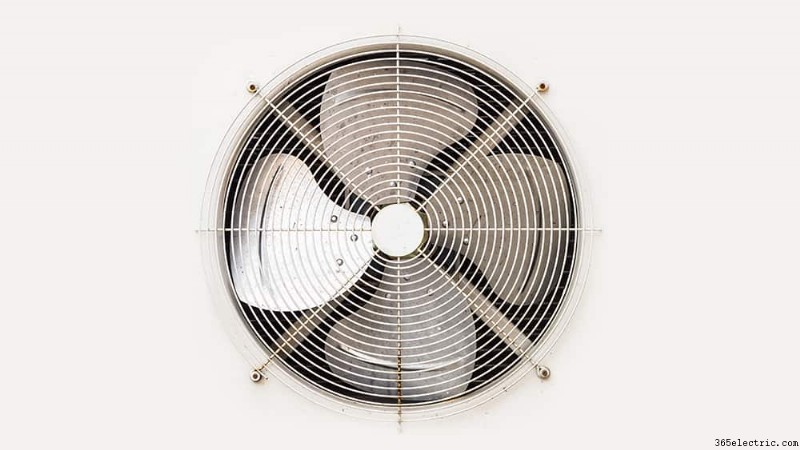
If you cannot figure out why your AC is not working, check the fan. If the AC fan is not turning on, it could be a dormancy issue. Or if your cooling system was lying dormant in winters and you have switched it on after some time, then fans may find it hard to start rotating again because of the dirt buildup.
Call an HVAC expert; they will know how to start the fans manually. The problem shouldn’t persist once the fans are out of dormancy.
6. AC Not Turning On? – Check the Switch
It’s the most obvious reason, but people overlook it all the time.
Just like any other electric appliance, your AC also has an ON/OFF switch. You will find it near to where your system is installed.
You may not have turned it off, but someone in your home could have done it. So, whenever your system refuses to turn on, do check the switch before you do anything else. The solution is simple, turn on the switch, and you would be feeling the pleasant breeze of air blowing in no time!
7. Uncleaned Condenser
Is your external AC unit not turning on?
The external or outside unit of your AC is called a condenser. Its job is to release the heat collected by the inside unit to the external environment.
Without regular maintenance, the condenser can get really dirty over time. It will have to work harder to disperse the heat as dirt acts as an insulator. The condenser will start drawing too much current, tripping the circuit breaker, and your AC won’t turn on.
If you think that the solution would be easy since you can clean the condenser yourself, well, unfortunately, it’s too late for that now. Once it is non-functional due to dirt, it may be time for a professional clean-up. Improper cleaning can damage the compressor coil’s fins, which is way worse than the dirt on the coils.
You can, however, as a maintenance routine, keep cleaning your condenser regularly yourself to prevent any major issues.
8. Tripped Circuit Breaker
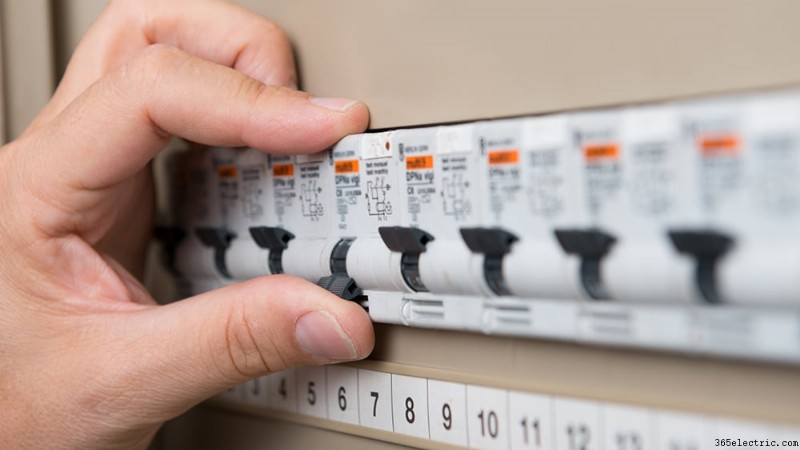
If you have tripped the circuit breaker, your AC won’t turn on.
So, whenever your AC unit is not turning on, do check the circuit breaker.
A circuit breaker is a safety tool that turns the power off in case of heavy voltage. It may be due to using high voltage appliances or power surges in the electricity grid.
All you’ve to do is find the air conditioner circuit breaker and turn it off completely. Then wait for a few minutes before turning it on.
Safety tip: If it keeps tripping, do not try to turn it on as it indicates a high voltage and can cause an electric fire. It is a problem that needs to be fixed by an expert.
9. Is Your AC Not Turning On Or Has It Run Its Course?
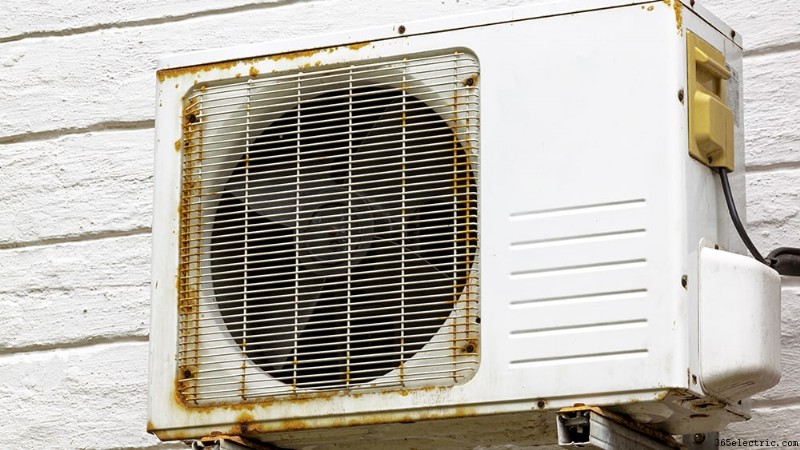
Your AC has stopped running, and you are wondering what could be the reason. If it has been your comfort companion for quite a long time, maybe it has reached the end of its lifespan.
But how can you actually tell that it’s time to say goodbye to your AC?
Following are some signs indication why your AC is not turning on:
- You notice a significant decrease in AC’s airflow. The decreased airflow can be due to dirty filters, but if cleaning the filters does not work, your AC has aged and needs replacing.
- Your AC requires repair services every now and then, which could give a clue if your AC has problems related to its lifespan.
- Your bills are increasing at an abnormal rate. Near the end of life, the AC becomes sluggish and overworks to maintain the desired temperature, leading to a surge in bills. You can go for an energy audit to see if it is really your air conditioner causing the bills to increase.
- The inside unit of your AC is leaking excessively. It may be due to a refrigerant leak, but even if the issue does not get resolved, it’s time for the unit to go.
- If your AC is making weird loud noises such as grinding, screeching, rattling, it’s time to replace it as it signals a serious problem.
- Your air conditioner smells bad. It could be due to molds growing inside your unit or due to dirty filters, but if the smell does not go away, consider replacing it.
If you are experiencing some of the above-mentioned signs and your AC is more than a decade old, you surely need a new unit. But do not take the decision on your own, have a professional thoroughly check your unit before going for a replacement.
Also, read these six ways to extend the average life of your AC.
10. Clogged Drain Pan
Your air conditioner unit not only cools or heats your house but also removes moisture from the air. So, where does that moisture go?
It is collected in the drain pan, located underneath the indoor unit evaporator coils, then flows into the condensate drain line, which is directed outside.
Without regular cleaning, especially in areas with high humidity, the drain pan can become clogged. The drain pan has a secondary drain to prevent the pan from clogging. But if both of them are full, this triggers the float switch, which turns the AC off. It is a safety mechanism that prevents excessive leakage in your house and prevents damages to the unit. But even then, the water leak from the clogged pan can damage your walls, ceilings, and furnishings.
So, your AC is not going to turn on until the pan is cleaned and the float switch is turned down.
You can use a wet/dry vacuum to suction the blockage out, but it is going to be really messy so if you don’t want to see all that gunk, better call an HVAC technician.
Make sure never to have this episode and do regular maintenance. You can use a wet/dry vacuum during the routine cleaning; we hope it won’t be this messy!
11. Damaged Motor
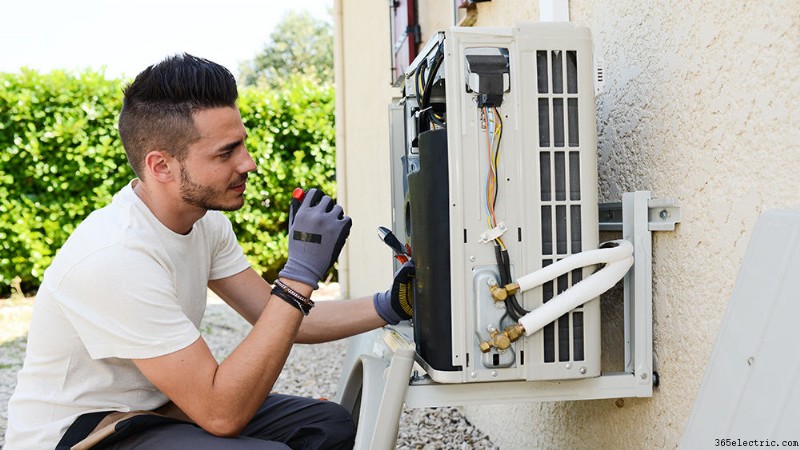
If you hear grinding noise when you turn on the AC, it is not a good sign as it may indicate malfunctioning motor blades.
Motors are sealed to prevent any contact with the outside air, water, or debris. Over time, due to old age or lack of maintenance, the seal can come off, and the oil which was sealed within the motor needed for lubrication seeps out. Without oil, the motor can wear out and can stop working entirely after some time. The outside unit cannot dissipate heat if the motor is faulty.
One question that arises; should you repair the motor or replace your air conditioner?
Here’s a tip that will make it easy to decide; if it costs half the amount of the original price, then consider replacing your system. The price range is $150 to $750 for a new motor.
Contact an HVAC specialist for a thorough inspection.
12. Faulty Power Cord or Outlet
Sometimes the issue is not severe; it’s just that you are anticipating the worst. So, examine simple things that are right in front of you; check the power cord, for instance.
The power cord can become frayed and wear down if your unit was stored for a season. Power outages can also damage the cord.
Unplug the cord for proper examination. If it shows signs of damage, you would have to replace it.
Or maybe it is not the cord, but the outlet was plugged in. You can check if the outlet is working fine by plugging in other appliances. If none of them work, you know what’s causing the issue.
Call an electrician to repair or replace the outlet, depending on the damage.
Safety tip: You should never attempt to repair the cord or power outlet yourself. There is a risk of getting an electric shock if you don’t turn off the power supply. Just turning the switch off won’t do; you have to turn the power off from the main power box.
Related: Home AC Blowing Warm Air? 12 Possible Causes and Their Solutions
13. Your AC Is Not the Right Size
Did you take into account the size of an air conditioner when buying it? Well, it is a mistake that is continuously overlooked but can have a great impact on the performance of the HVAC system.
The air conditioner that is not the right size will have to work harder and, at one point, will break down completely.
When your AC is larger than required, it will keep turning on and off quickly, increasing wear and tear. Further, it won’t remove the excess humidity as it does not stay on for a sufficient time.
On the other hand, a small unit will have to run for a long time to cool/warm the house, which may cause overheating of the capacitor.
An HVAC system that is not the right size can also wreak havoc on your bills.
Unfortunately, the only solution is to replace the unit.
Some parameters determine what size you require, such as the area of your house, climate, number of windows, and insulation level. You will have to go for a professional evaluation to find out the perfect size of air conditioner for your home.
There is also an equation that roughly estimates the right size of AC.
(Square footage of your home x 25/ 12000) – 0.5 =Required AC size
Let’s say your area is 1000 square feet.
(1000×25/12000) – 0.5=1.5
You require a 1.5-ton AC.
If you figured out why your AC was not turning on and managed to find the solution on your own, congratulations! But even then, we recommend that you contact a professional for a complete inspection to avoid similar problems in the future.
By having an HVAC expert perform annual inspections and staying on top of the maintenance routine, you can avoid any potential AC outages in the future.
